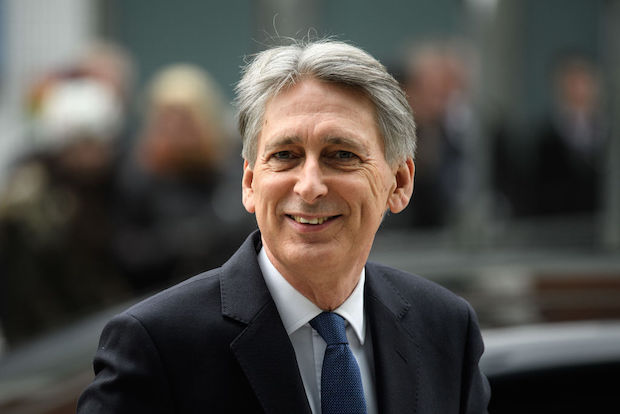So long, public sector pay cap. After months of speculation – and some public Cabinet feuding – over the seven-year pay freeze, No 10 today announced that the government would be adopting a more ‘flexible’ approach from now on. Police and prison officers will be the first to receive a pay rise with more sectors expected to get a pay increase as it’s rolled out across the board.
This concession from the government just months after Philip Hammond argued on Marr that public sector workers get a 10pc ‘premium’ over their private sector counterparts shows that the shift in public mood proved more powerful than any argument for it. The difficult thing for the government is that it looks like a concession. With Hammond previously reported to have said public sector workers are ‘overpaid’, it’s unlikely the benefactors of the U-turn will feel particularly indebted to the Tories.
What’s more, there’s a high chance that the costly move could end up isolating another faction of voter. Hammond has said that it will not be funded by any more borrowing which means it will have to come from one of cuts or higher taxes. In the preview clip for the Budget – which will be on 22 November – Hammond offered a hint of which of the two he will be plumping for:
‘When I as Chancellor of the Exchequer go to the House of Commons and review our economic performance and set out our plan for raising the taxes that we need over the coming years.’
Today I’m announcing the date of the next Budget. Watch as I explain why it’s one of the most important days of the parliamentary calendar. pic.twitter.com/svSK4uK0S0
— Philip Hammond (@PhilipHammondUK) September 12, 2017
This Budget will be one of the big tests for May’s minority government – and one of it’s most dangerous moments. There is growing unease among Conservative MPs about what tricks Hammond will need to perform in order to fund this latest U-turn (not forgetting the NICs U-turn or the ditched manifesto cuts) and still balance the books.







Comments